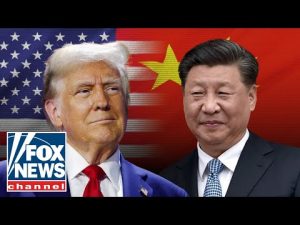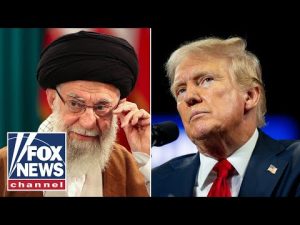In a world where the concept of free speech is often celebrated, it appears that some expressions of that freedom are met with stricter scrutiny, especially when it comes to individuals seeking student visas in the United States. The current administration’s efforts to reassess who gets a chance to study in America is not, contrary to some reports, an attack on free speech. Instead, it is a pragmatic approach to stop potentially harmful ideologies from gaining a foothold in the learning environments that should prioritize education over chaos.
First, the idea that one has an inherent right to a student visa is flawed. Nobody is guaranteed entry into the U.S.—that’s simply not how the system works. The notion that applicants are entitled to a visa unless proven otherwise misses the point entirely. Visas are privileges bestowed by the state, not rights guaranteed by the Constitution. Consular officers around the world regularly deny visas for various reasons, from concerns about overstaying to suspicions about deeper connections to unlawful activities. It’s important to remember that these decisions are made with the intent to protect both the nation’s integrity and its educational institutions.
Moreover, recent events have shown that certain individuals leveraging their student status can create unrest rather than contribute productively to the academic atmosphere. Take, for instance, the protests on campuses that have disrupted classes and led to safety concerns, painting a vivid picture of how some elements have misused free speech. It’s baffling that a country like the U.S., known for its welcoming spirit, would allow individuals to undermine the very institutions providing them with educational opportunities. The question arises: why would we invite people into our educational system that could potentially disrupt it further?
Critics often misconstrue the administration’s actions as a crackdown on free speech, but what if we reframed the conversation? Instead of viewing it as limiting rights, think of it as enhancing the quality of discourse within American universities. A greater focus on responsible vetting processes ensures that the campuses remain sanctuaries of learning, not battlegrounds for ideologies that advocate for violence or disruption. The priority should be to foster an environment conducive to growth and respect for differing viewpoints.
In conclusion, it’s worth remembering that no other country would be as accommodating when it comes to the influx of individuals who might threaten professional and social norms. The U.S. must prioritize the welfare of its students and institutions. After all, it is about time to ask ourselves: why would we roll out the welcome mat for those who may only bring turmoil instead of knowledge? The approach taken by the current administration simply aims to fortify our educational landscape, ensuring it remains a beacon of true learning and discourse.







